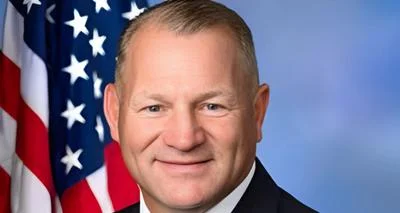Mr. Chairman, I am pleased that today we are marking up three non-controversial health care bills, and I commend my colleagues Mr. Nunes and Ms. Sewell, Mr. Marchant and Mr. Kind, and Ms. Black and Mr. Thompson for their hard work on these issues.
The Black-Thompson bill would bring telehealth services into the Medicare Advantage system. I support this work but I hope that we can get a commitment to also do more work regarding telehealth in fee-for-service Medicare. I know there are challenges, but telehealth is an issue that deserves further exploration.
The Marchant-Kind bill provides additional technical modifications to the Stark self-referral laws, building on the bipartisan work we did in July on this issue. This legislation provides some common-sense clarifications for providers, while maintaining important Medicare protections.
The Nunes-Sewell bill would provide a five year extension for Medicare ambulance provider payments. This longer-term extension gives an opportunity to begin to get cost data from ambulances to better inform future policy decisions.
I expect that like our mark up in July, the extender-related provisions will find their way into an end of the year health care extenders package.
I want to take a moment to talk about extenders. I have great hope that we can continue our bipartisan work on this issue. Where I think we get hung up, and have in the past, is finding offsets. My main concern is Medicare beneficiaries, who tend to live on low, fixed incomes, and also Medicaid and CHIP beneficiaries. In the past Congress enacted some policies shifting more costs on to seniors and I was not happy. I hope going forward we can agree that we shouldn’t be taking more money away from our constituents.
Also, I suspect that every member on this committee has a hospital in their district - at least one - and I also bet you’re hearing from them about how they are feeling the squeeze and what that means for their bottom lines and ability to serve our communities-both for care and for good paying jobs. Our hospitals are there for our communities when we need them. But following the recent hurricanes, many hospitals were damaged in Florida, Puerto Rico, Texas, and the US Virgin Islands. This time our hospitals need us. I urge my Republican colleagues to protect the programs on which they rely rather than using them to pay for extenders. Now is not the time to play politics with hospitals.
Unfortunately, today’s markup is not all bipartisan bills. H.R. 2824, which would reauthorize the Maternal, Infant, and Early Childhood Home Visiting program (MIECHV), represents a missed opportunity to build on a successful, bipartisan program. And H.R. 2792, which I understand the Majority plans to pair with H.R. 2824 before sending the bills to the floor, would cruelly take away the last lifeline for some of our poorest and most vulnerable seniors and people with severe disabilities.
My Democratic colleagues and I strongly support reauthorizing MIECHV before authorization expires on September 30. Any delay would slow hiring or suspend new enrollment of families, in turn, undermining the important role the programs play in our communities. I was proud to be an original cosponsor of H.R. 3525, the Home Visiting Works Act, which would reauthorize MIECHV and double it’s funding over the next 5 years.
My hometown of Springfield, Massachusetts is a good example of how MIECHV has helped communities. Massachusetts found that 31 percent of babies in Springfield were born to mothers with less than a high school education, poverty is more than two and a half times higher than in the rest of the state, and the rate of substance abuse is nearly double the state average. In part because of the opioid crisis, infant mortality is nearly twice as high, and the rate of serious child neglect is three times the state average. Massachusetts used MIECHV dollars to fund a continuum of home visiting services in Springfield which has benefited many families.
Democrats can’t in good conscience support a MIECHV bill that would put home visiting services at risk in the communities that need them the most and paid for on the backs of our nation’s most vulnerable populations.
Our side will offer amendments to correct problems with H.R. 2824 and to try to ensure that H.R. 2792 does not harm our constituents. I hope my Republican colleagues will agree to these amendments and we can move quickly to enact a clean reauthorization, without harmful and dangerous cuts.








